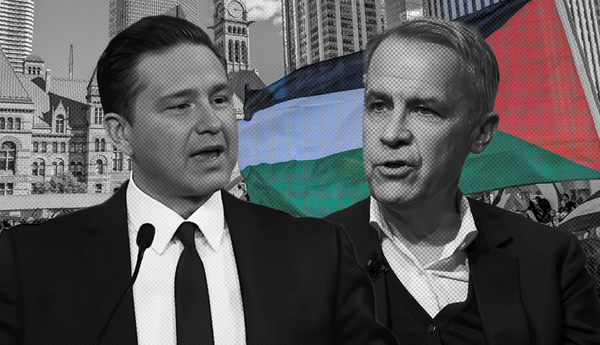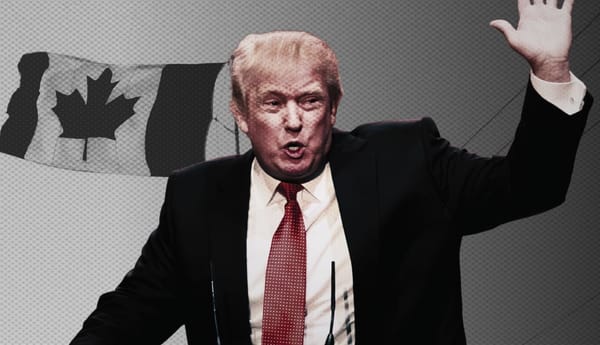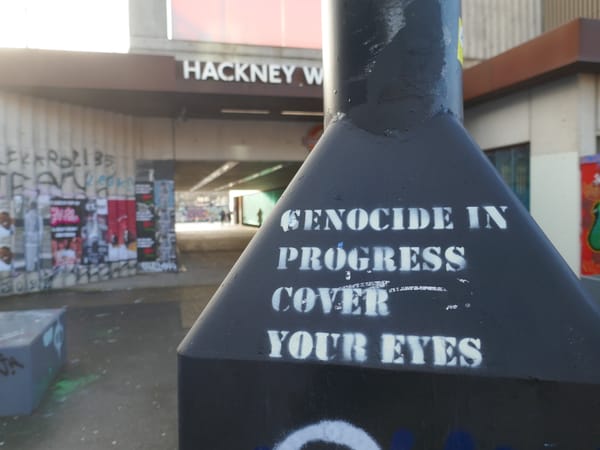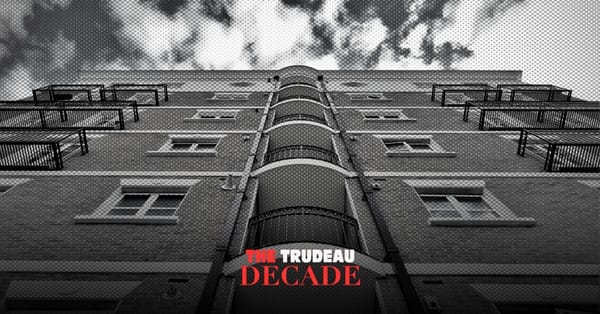The ties that bind this country are ones of racism. Violence and subjugation against non-white people has been at the core of this colonial project since Europeans first set foot upon these shores.
It’s the link between hundreds of unmarked graves in British Columbia, and the mass murder of a family in London, Ont. by an anti-Muslim attacker.
The last weeks have been a speed run through this country’s ongoing history of brutality. This is Canada; this is what the country is.
A parade of politicians made appearances at a vigil Tuesday night in London to denounce hatred and embrace the moment. It wasn’t quite sickening, but there was something awful and false about it.
Prime Minister Justin Trudeau kicked off yet another of his empathy tours, showing up to the aftermath of a tragedy to put his hand on his heart and express how much he feels the pain of the victims. How much it hurts him to see such hatred and violence in the country he leads.
In his speech, Trudeau repeated one of Canada’s great modern myths: that it is a caring and nice country. Trudeau said, “As Canadians we make a pact with one another that we will look out for each other, take care of each other, respect each other.”
But earlier that day, Trudeau revealed the lie within that myth, when he was asked whether he thought Quebec’s Bill 21, which bans public servants from wearing religious symbols such as the hijab, fostered hatred and division. The best he could offer were some flat platitudes.
“I have long expressed my disagreement with Bill 21,” Trudeau told reporters, “But I have also indicated that it is for Quebecers to challenge and defend their rights in court, which they have been doing.”
So the prime minister says Canadians have a pact where they look out for each other, unless they are Muslims in Quebec, in which case they’re on their own to fight for themselves in court.
A couple weeks earlier, 215 unmarked graves were found at the site of the Kamloops Indian Residential School in B.C. The findings were announced by the Tk’emlúps te Secwépemc Nation, which brought widespread outrage, expressions of empathy and promises to do better.
There too, the prime minister expressed his sorrow, this time from the House of Commons: “Today, some of the children found in Kamloops, and who have yet to be found in other places across the country, would have been grandparents or great-grandparents. They would have been elders, knowledge keepers and community leaders. They are not. And this is the fault of Canada.”
Here again, we have an acknowledgement of some kind of state or societal problem, which might imply that Trudeau could be turning around to actually do something.
Well, no. His government is fighting against compensating residential school survivors in a class-action lawsuit seeking reparations for the cultural damage caused by residential schools, including the Kamloops one.
While the government admits in its court filings that the loss of language and other cultural practices were an “unavoidable implication” of teaching Indigenous children English, and that the schools were meant to assimilate them into Christian Canadian society, it maintains it wasn’t trying to “destroy the ability … to speak their Indigenous language or to lose the customs or traditions of their culture.”
The government’s lawyers added: “While the federal government may have contributed to those losses [of Indigenous culture] in various ways, such losses were not as a result of any unlawful acts or omissions of Canada or its employees or agents with respect to the operation of residential schools.”
That’s a hard argument to square after the discovery at Kamloops, with no records of who the dead are or how they met their end. It’s even harder to square with Trudeau’s rhetoric that those deaths are “the fault of Canada.”
Racism remains present today in foster systems across the country, where 52 per cent of the children are Indigenous, despite making up just 7 per cent of the youth population as of the 2016 census. Where a 16-year-old Indigenous youth can be kept for two whole days in windowless basement isolation under the pretext of COVID-19 precautions, with nothing but a bed and a chair. Not even allowed books, and with their cell phone confiscated.
You can pick up other threads of this official discrimination throughout the country’s history. The treatment of East Asians, in particular Chinese and Japanese people, is one of outright bigotry.
Forbidding Chinese and Japanese immigrants from voting in provincial B.C. elections in the late 19th Century, instituting a federal Chinese Head Tax on newcomers, and forbidding Chinese and Japanese people from working in the mining industry is just scratching the surface of official anti-Asian racism. And in the present, hate crimes against Asians are up at least 800 per cent from the previous year according to some estimates, a grim watermark for the unofficial Canadian racism.
Mumilaaq Qaqqaq, the NDP MP for Nunavut, said last Friday that “colonization is not over. It has a new name. Children are still being separated from their communities. Foster care is the new residential school system.”
To understand how a man driving a truck could deliberately wipe out the majority of a Muslim family, or how the graves of hundreds of children could be unmarked for a century, you need only grasp that the fabric of this country is woven with countless threads like this.
When a Quebec judge threw out a narrow part of Bill 21 last month, he cited expert testimony that described how the bill itself laid the groundwork for bigotry. Bill 21, the psychology professor testified, is “likely to be perceived as conveying a norm about people who wear religious symbols … especially women who wear a hijab” and so, “It would be expected … therefore to result in increased prejudice toward these social groups and more negative outcomes for individuals belonging to these groups.”
The “pact” Trudeau referred to at the London vigil doesn’t exist. The true pact in this country is that discrimination is built into the system. The government may even acknowledge that discrimination, but they will do nothing to fix it.
Discrimination is the system. From coast to coast to coast, this is what holds the country together.






